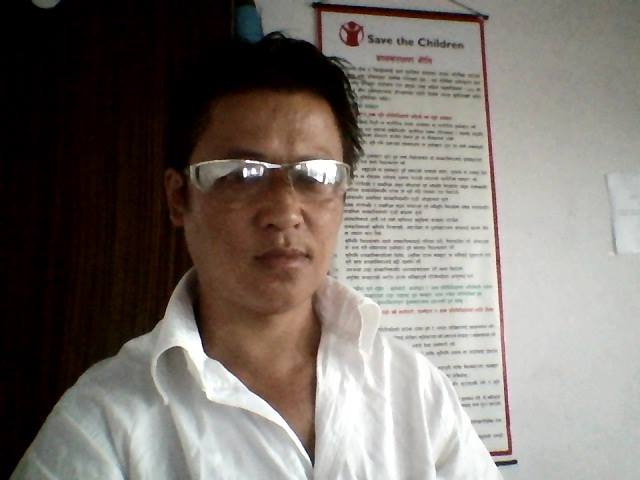
Kathmandu (Pahichan) July 4 –
Context and problem to address
Alternative sexual lifestyles are not widely accepted in Nepal, leading to challenging conditions for the country’s LGBT population. HIV prevalence in Nepal is below 1%, however the country faces a disproportionate burden among a number of at-risk populations, including sex workers, injecting drug users, men who have sex with men (MSM), and migrants. In 2014, there were an estimated 35,000-43,000 people living with HIV in Nepal, and 2,000-4,000 deaths occurred due to AIDS that year1. Among Nepal’s MSM, HIV prevalence is estimated at around 3.8%, and may be as high as 8.7% among male sex workers2.
 HIV is the entry point for advocacy purposes. HIV and rights should not go separately.
HIV is the entry point for advocacy purposes. HIV and rights should not go separately.
Parsu Ram Rai, Deputy Director, Blue Diamond Society
The Blue Diamond Society (BDS) was established in 2001, and works to raise awareness and reduce the impact of HIV on Nepal’s MSM and Transgender population through provision of behaviour change communications, STI clinics and voluntary counselling and testing services. Their outreach work has reached 350,000 individuals with activities such as health promotion for sexual minorities, psychosocial counselling, HIV and AIDS awareness, human rights, legal assistance, advocacy and lobbying for policy change, and income-generation programmes. They have also organized participatory awareness-generation events such as a beauty pageant and built and strengthened communities among the country’s LGBT and MSM population. BDS has also worked to document rights violations, including attempted murder, rape, blackmail, abuse, and discrimination, to help draw local, national, and international attention to the challenges faced by the LGBT and MSM population in Nepal.
To date, BDS has implementing a number of different projects mostly on HIV prevention and intervention amongst MSM and Transgender people, funded by different donors like the World Bank under the National Centre for AIDS and STI Control (NCASC) and Global Fund to Fight AIDS, TB and Malaria under Save the Children and the Family Planning Association of Nepal (FPAN).
Sources:
2: Nepal Country Progress Report on HIV Response 2014: http://www.unaids.org/
Description of the programme
BDS adopted the strategy of building a national network of MSM, Male Sex Workers, and Transgender people, in addition to providing three branches of service delivery: Firstly, Drop-In Centres (DICs) that provide safe spaces for gatherings, discussions, peer support, and counselling. The DICs also host behaviour change communication around safer sex and risk reduction, condom and lubricant promotion and distribution, and are also used for advocacy and sensitisation of policymakers and stakeholders.
Secondly, field-based activities including outreach, community building and mobilisation; education and awareness activities in spaces of social interaction of sex workers, MSM and Transgender populations; information dissemination and advice; field/group counselling activities; and referrals to the drop in centres and clinics. This initially commenced with outreach into the MSM and Transgender community, where BDS distributed condoms and lubricant in a number of hot spots of Kathmandu. Subsequently, between April 2002 and April 2006, BDS implemented a Behaviour Change Intervention Program for MSM and Transgender people living in Kathmandu with support from Family Health International. The program was the first of its kind in Nepal to incorporate delivery of sexual health information to MSM and Transgender people via outreach and peer mobilization, in addition to a Drop-in Centre. BDS has been able to expand their prevention and intervention program to other districts of Nepal where MSM and Transgender people had been found to be at risk.
Thirdly, clinical and HCT care services which include subsidised STI syndrome management, general health management, HIV counselling and testing, condom and lubricant distribution, and care and support services for those MSM and Male Sex Workers who are living with HIV.
Monitoring and evaluation
BDS works in coordination with District AIDS Coordination Committees, District Public Health Offices, and other governmental offices. Programme data is compiled by partner organisations, then is subsequently reported to the NCASC. The programme has also been subject to third-party evaluation.
Results
During the period of mid-July 2014 to mid-March 2015, BDS reached 12,010 individuals through their comprehensive package, in conjunction with Save the Children and the Global Fund. Additionally, through community outreach in conjunction with the National Centre for AIDS and STD Control, they were also able to newly reach 4,463 MSM, 1,366 Male Sex Workers, and 879 Transgender people with at least one behaviour change communication.
BDS has been able to increase empowerment among the country’s MSM and Transgender communities, particularly with regard to improved awareness of HIV and other STI issues, and safer sexual health practices. The programme has also seen some reductions in the levels of stigma and discrimination towards the LGBT community at a district level, and the public media has also been targeted to sensitise them towards MSM and Transgender issues.
Elements of success and innovation
Conventional beginnings of an unconventional NGO: Sexual minorities are not constitutionally-
Community involvement and ownership: More than 90% of BDS staff are MSM and Transgender people, who are best placed to know and respond to the needs of their community. The BDS field staff have been successful in gaining trust and helping communities engage with interventions, and have been instrumental in accessing peers who had been hidden or lacked confidence to engage with services.
Critical enablers of success
A strong network and good coordination has been built among Nepal’s MSM and Transgender community.
Keywords
Community based; Community Driven; Effective Implementation.
Further reading
Blue Diamond Society website:
Copyright © All right reserved to pahichan.com Site By: Sobij.